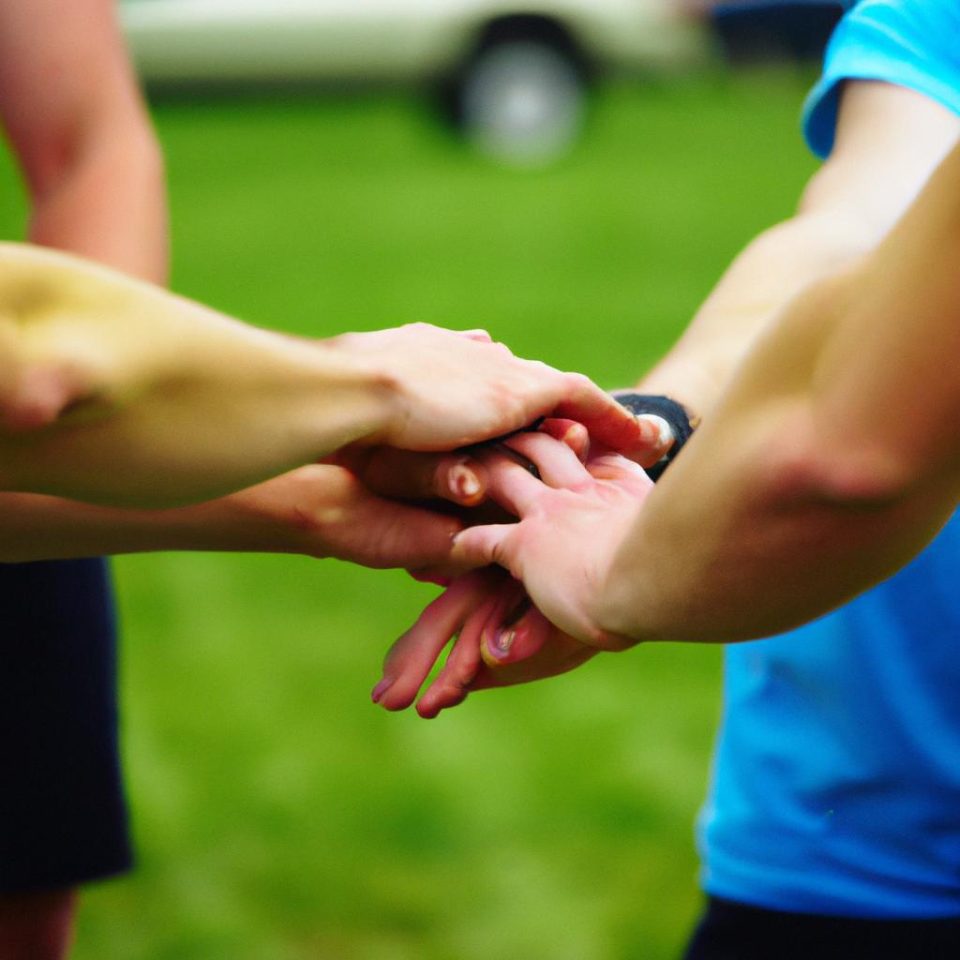Strength in Unity: How Team Sports Foster Camaraderie and Teamwork Skills

In a world often characterized by individual pursuits and personal achievements, the essence of teamwork frequently takes a backseat. Yet, there exists a realm where collective effort and shared goals thrive: the vibrant landscape of team sports. From the synchronized movements of a soccer team executing a well-rehearsed play to the unwavering support of a basketball squad rallying around a last-minute shot, the power of unity comes alive on the field. This article delves into the profound ways team sports cultivate camaraderie and instill invaluable teamwork skills, exploring how players forge lasting bonds, embrace diverse talents, and navigate the complexities of collaboration. As we uncover the lessons learned on and off the field, we’ll illuminate the essential role that these shared experiences play in shaping individuals and strengthening communities. Join us on this journey to discover how strength truly blossoms in unity.
The Power of Shared Goals in Building Lasting Friendships
In the realm of team sports, the concept of working towards a common objective serves as a catalyst for forging deep and meaningful friendships. When individuals come together to train, strategize, and compete, they begin to invest emotionally in each other’s successes and failures. The shared experiences—whether celebrating victories or overcoming losses—create a unique bond where trust flourishes. This sense of solidarity encourages team members to go beyond superficial relationships, as the pursuit of collective achievement often leads to vulnerability and mutual support.
Moreover, defining shared goals helps in breaking down barriers and building an atmosphere of inclusivity and encouragement. By fostering an environment where everyone contributes toward achieving a common aim, individuals learn the importance of collaboration and diverse perspectives. This not only enhances their teamwork skills but also nurtures empathy and respect among teammates. The friendships that blossom in such an environment are often characterized by loyalty and authenticity, as each member feels valued and understood. Here are a few key components that enhance these relationships:
- Open Communication: Transparency fosters trust and avoids misunderstandings.
- Shared Experiences: Celebrating achievements or facing challenges together strengthens bonds.
- Inclusive Culture: Embracing diverse skills and perspectives enriches the team dynamic.
| Benefit | Description |
|---|---|
| Increased Trust | Working towards a common goal creates a trusting environment. |
| Enhanced Communication | Regular interactions lead to better communication skills. |
| Stronger Support Systems | Team members lean on each other in times of need. |

Cultivating Communication and Trust Through Team Dynamics
Effective communication within a team is akin to the precision of a well-oiled machine, where each component plays a crucial role in achieving a common goal. In team sports, players learn not only to verbalize strategies but also to read non-verbal cues from their teammates. This intuitive understanding fosters a profound sense of trust, enabling athletes to rely on one another during high-pressure moments. As these interactions unfold, players develop skills that transcend the playing field, such as active listening, constructive feedback, and emotional intelligence.
Moreover, the camaraderie built through shared experiences, both triumphant and challenging, reinforces the bonds between teammates. This profound connection is characterized by several elements:
- Shared Goals: Working together toward a victorious outcome enhances collaboration.
- Mutual Respect: Honoring each other’s contributions cultivates a positive environment.
- Conflict Resolution: Navigating disagreements develops problem-solving abilities that are vital in any cooperative setting.
As teams face challenges together—be it during grueling practices or in the heat of competition—they learn the importance of transparency and vulnerability. This creates a safe space where individuals feel appreciated and understood, fundamentally strengthening their communication skills and trust in one another. By encouraging personal growth and fostering positive interactions, team sports serve as a breeding ground for essential life skills that resonate beyond the realm of athletics.

Nurturing Leadership and Resilience in a Collaborative Environment
In the dynamic realm of team sports, athletes are constantly faced with challenges that require not only physical prowess but also emotional strength and the ability to adapt. These environments serve as crucibles where leadership qualities are nurtured through shared experiences. Members learn to recognize their unique strengths and weaknesses, enabling them to support one another better. As they strategize to overcome obstacles, they foster a culture of resilience that extends beyond the field. This **collective problem-solving** enhances trust among teammates, leading to a richer camaraderie. In essence, every game becomes an opportunity to practice vital leadership skills that are essential in any collaborative scenario, be it in sports or professional settings.
Moreover, the commitment to a common goal fosters a sense of unity that transcends individual ambitions. Coaches play a crucial role in this, guiding athletes not just in their specific roles but also instilling the importance of teamwork. Key takeaways from these interactions include:
- Effective Communication: Encouraging open dialogue to strengthen team spirit.
- Conflict Resolution: Learning to manage disagreements constructively.
- Shared Accountability: Promoting a culture where everyone takes responsibility for collective outcomes.
In practice, these lessons create a sturdy framework for teamwork that is applicable whether on the field or in the office. The following table illustrates how these skills manifest in different contexts:
| Skill | In Team Sports | In the Workplace |
|---|---|---|
| Communication | Calling plays and sharing feedback | Regular team meetings and updates |
| Trust | Reliance on teammates during critical moments | Delegating tasks and responsibilities |
| Adaptability | Adjusting strategies based on opponents | Pivoting in response to market changes |
In Summary
As the final whistle blows and the cheers fade into the background, it’s clear that the true victory in team sports extends far beyond the scoreboard. The bonds forged on the field or court transcend mere competition; they embody a profound lesson in collaboration and shared purpose. In every pass, every play, and every moment of triumph or defeat, athletes learn that strength lies not just in individual talent but in the power of unity.
In reflecting upon the experiences and lessons drawn from these collective endeavors, it becomes evident that the camaraderie developed through team sports nurtures essential life skills. From communication and trust to empathy and resilience, these attributes are invaluable, shaping not only effective teammates but also compassionate individuals capable of tackling life’s challenges together.
So, as we step off the playing surface and into the broader arena of life, let us carry forward the spirit of togetherness that team sports instill in us. For it is in our shared experiences and collaborative efforts that we truly discover the depth of our strength—a reminder that, united, we can achieve extraordinary heights. After all, in this ever-evolving journey, camaraderie remains the heartbeat of any successful endeavor, be it on the field or in our everyday lives.





